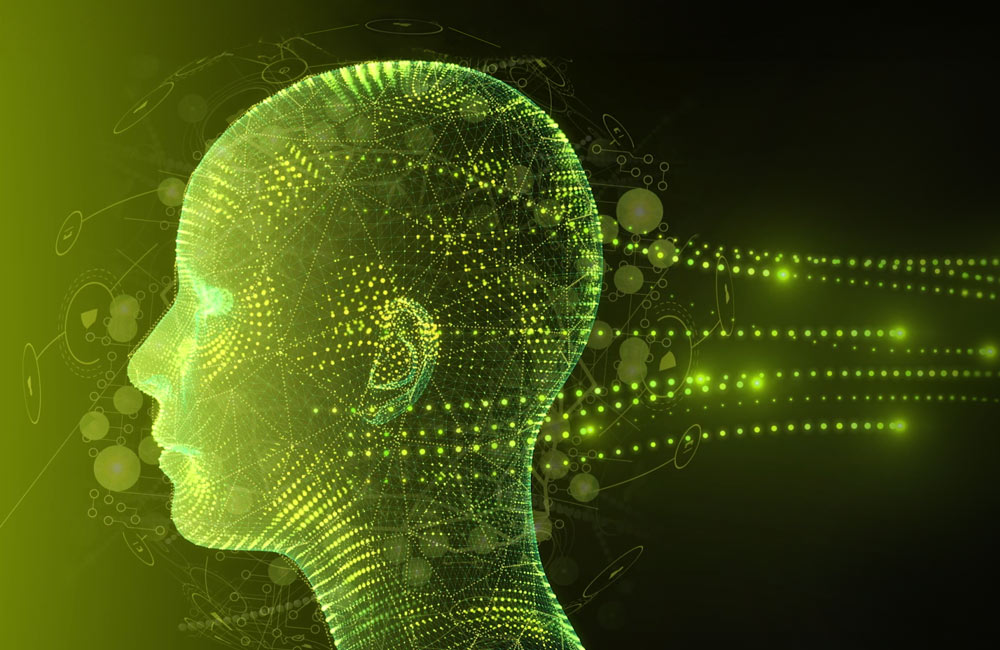Artificial Intelligence (AI) is changing education while making finding out more available but likewise sparking debates on its effect.
While trainees hail AI tools like ChatGPT for wiki-tb-service.com improving their learning experience, speakers are raising issues about the growing reliance on AI, which they argue fosters laziness and weakens academic integrity, specifically with lots of students unable to safeguard their projects or given works.
Prof. Isaac Nwaogwugwu, a speaker at the University of Lagos, in an interview with Nairametrics, revealed aggravation over the growing dependence on AI-generated reactions among students recounting a current experience he had.
RelatedStories
Avoid sharing individual info that can determine you with AI tools- Expert alerts
Chinese AI app DeepSeek sparks worldwide tech selloff, obstacles U.S. AI dominance
"I gave a project to my MBA trainees, and out of over 100 students, about 40% submitted the exact very same answers. These students did not even understand each other, however they all utilized the same AI tool to create their actions," he stated.
He noted that this trend prevails among both undergraduate and postgraduate trainees however is particularly worrying in part-time and range learning programs.
"AI is a serious obstacle when it concerns tasks. Many trainees no longer believe critically-they simply browse the web, create responses, and submit," he added.

Surprisingly, some speakers are also accused of over-relying on AI, setting a cycle where both educators and trainees turn to AI for mariskamast.net convenience instead of intellectual rigor.
This argument raises vital questions about the function of AI in scholastic stability and trainee advancement.
According to a UNESCO report, while ChatGPT reached 100 million regular monthly active users in January 2023, only one country had actually launched policies on generative AI since July 2023.
As of December 2024, ChatGPT had more than 300 million individuals using the AI chatbot each week and 1 billion messages sent every day around the globe.
Decline of academic rigor

University speakers are significantly concerned about trainees submitting AI-generated assignments without genuinely understanding the material.
Dr. Felix Echekoba, a speaker at Nnamdi Azikiwe University, expressed his issues to Nairametrics about trainees progressively counting on ChatGPT, just to have problem with answering standard concerns when tested.
"Many trainees copy from ChatGPT and send sleek assignments, however when asked basic concerns, they go blank. It's disappointing since education is about finding out, not simply passing courses," he said.
- Prof. Nwaogwugwu pointed out that the increasing variety of first-rate graduates can not be completely credited to AI however admitted that even high-performing students use these tools.
"A top-notch student is a first-rate trainee, AI or not, however that does not suggest they don't cheat. The advantages of AI may be peripheral, however it is making students dependent and less analytical," he said.
- Another lecturer, Dr. Ereke, from Ebonyi State University, raised a different concern that some lecturers themselves are guilty of the very same practice.
"It's not just trainees utilizing AI slackly. Some lecturers, out of their own laziness, create lesson notes, course describes, marking plans, and even examination concerns with AI without examining them. Students in turn utilize AI to create responses. It's a cycle of laziness and it is eliminating real knowing," he lamented.
Students' viewpoints on use
Students, on the other hand, say AI has enhanced their knowing experience by making scholastic materials more understandable and available.
- Eniola Arowosafe, a 300-level Business Administration student at Unilag, shared how AI has actually significantly assisted her knowing by breaking down complex terms and offering summaries of prolonged texts.
"AI assisted me comprehend things more easily, especially when dealing with intricate topics," she explained.
However, she recalled a circumstances when she used AI to submit her job, just for her speaker to immediately acknowledge that it was produced by ChatGPT and bphomesteading.com decline it. Eniola kept in mind that it was a good-bad effect.
- Bryan Okwuba, who recently finished with a top-notch degree in Pharmacy Technology from the University of Lagos, strongly believes that his scholastic success wasn't due to any AI tool. He associates his exceptional grades to actively appealing by asking questions and focusing on areas that speakers emphasize in class, as they are often reflected in examination concerns.
"It's everything about existing, focusing, and tapping into the wealth of understanding shared by my associates," he said,
- Tunde Awoshita, a final-year marketing student at UNIZIK, confesses to sometimes copying directly from ChatGPT when facing multiple deadlines.
"To be truthful, there are times I copy directly from ChatGPT when I have multiple deadlines, and I know I'm guilty of that, a lot of times the lecturers don't get to check out them, however AI has actually likewise assisted me learn much faster."
Balancing AI's role in education
Experts believe the solution lies in AI literacy; teaching trainees and speakers how to utilize AI as a learning help rather than a faster way.
- Minister of Education, Dr. Tunji Alausa, highlighted the integration of AI into Nigeria's education system, worrying the importance of a well balanced technique that keeps human involvement while utilizing AI to improve finding out results.
"As we browse the quickly progressing landscape of Artificial Intelligence (AI), it is vital that we prioritise human firm in education. We should make sure that AI enhances, instead of changes, educators' important role in shaping young minds," he said
Dorcas Akintade, a cybersecurity change specialist, resolved growing concerns concerning the use of artificial intelligence (AI) tools such as ChatGPT and their potential threats to the instructional system.
- She acknowledged the advantages of AI, nevertheless, highlighted the need for care in its usage.
- Akintade highlighted the increasing resistance among teachers and schools towards integrating AI tools in learning environments. She identified two main reasons that AI tools are discouraged in instructional settings: security threats and plagiarism. She discussed that AI tools like ChatGPT are trained to react based upon user interactions, which may not align with the expectations of teachers.
"It is not looking at it as a tutor," Akintade said, describing that AI does not deal with specific mentor techniques.

Plagiarism is another problem, as AI pulls from existing data, typically without correct attribution
"A great deal of people need to understand, like I said, this is information that has been trained on. It is not just bringing things out from the sky. It's bringing information that some other people are fed into it, which in essence implies that is another person's documents," she cautioned.
- Additionally, Akintade highlighted an early issue in AI advancement known as "hallucination," where AI tools would create details that was not accurate.
"Hallucination implied that it was drawing out info from the air. If ChatGPT could not get that details from you, it was going to make one up," she described.
She suggested "grounding" AI by offering it with specific info to prevent such errors.
Navigating AI in Education

Akintade argued that banning AI tools outright is not the solution, particularly when AI presents an opportunity to leapfrog traditional instructional approaches.
- She thinks that regularly reinforcing crucial details assists individuals remember and prevent making mistakes when confronted with obstacles.
"Immersion brings conversion. When you tell individuals the very same thing over and over once again, when they are about to make the errors, then they'll remember."
She also empasized the requirement for clear policies and procedures within schools, noting that lots of schools need to address individuals and procedure elements of this usage.
- Prof. Nwaogwugwu has actually resorted to in-class projects and tests to counter AI-driven scholastic dishonesty.
"Now, I generally utilize assignments to ensure trainees supply original work." However, he acknowledged that handling big classes makes this method hard.
"If you set complicated concerns, trainees will not be able to use AI to get direct responses," he explained.
He emphasized the need for universities to train lecturers on crafting examination questions that AI can not quickly fix while acknowledging that some speakers battle to counter AI abuse due to an absence of technological awareness. "Some speakers are analogue," he stated.
- Nigeria released a draft National AI Strategy in August 2024, focusing on ethical AI advancement with fairness, transparency, responsibility, and privacy at its core.
- UNESCO in a report calls for the guideline of AI in education, encouraging institutions to examine algorithms, data, and outputs of generative AI tools to guarantee they fulfill ethical requirements, safeguard user information, and filter unsuitable content.
- It stresses the need to evaluate the long-term impact of AI on important abilities like believing and creativity while producing policies that align with ethical structures. Additionally, UNESCO recommends carrying out age constraints for GenAI use to secure more youthful trainees and safeguard vulnerable groups.
- For federal governments, it recommended adopting a collaborated nationwide technique to managing GenAI, including establishing oversight bodies and experienciacortazar.com.ar aligning policies with existing information security and privacy laws. It emphasizes evaluating AI dangers, imposing more stringent guidelines for high-risk applications, and making sure national information ownership.









